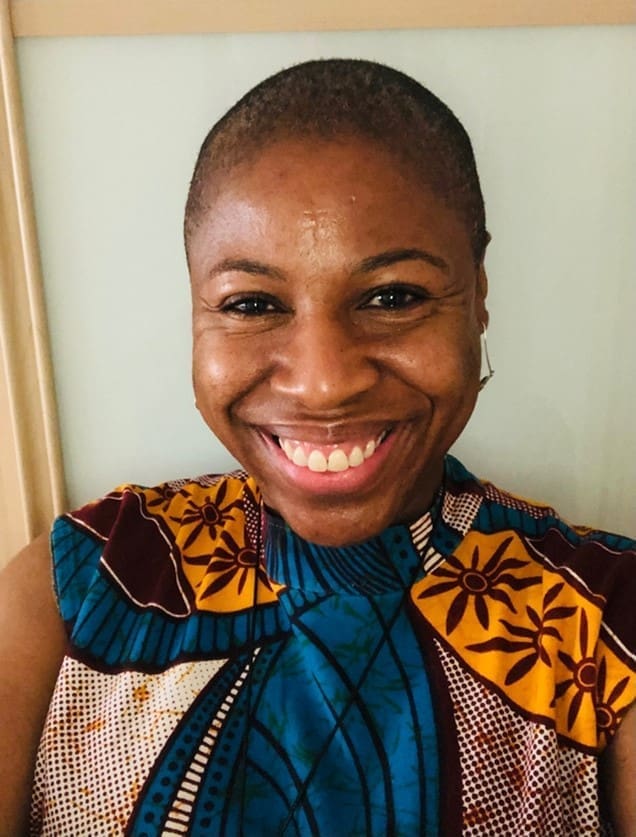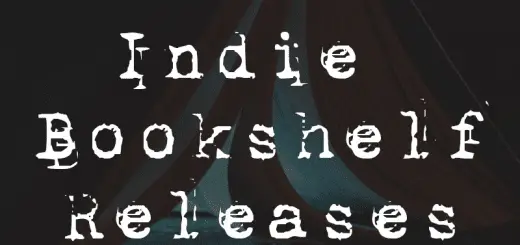The Muse Has Left the Building: Getting your ‘Poe’ mojo back on the go
The Muse Has Left the Building: Getting your ‘Poe’ mojo back on the go
By Sarah Elliott
If you fancy yourself as a 21st-century bard but you’re in an open relationship with your muse and they aren’t around right now, read on. Inspiration for poetry can be hidden or in plain sight and this article will help you spy it out.
Ink gone dry? Battery drained? No spark of poetic inspiration flying in like a superhero to come save you? Imagine, you’ve been commissioned (yes getting paid) to write a collection of poems and you can’t find any inspiration. Instagram poetry prompts are more played out than reruns of Friends. You’re worn down from workshops like a pencil top eraser and that cursed cursor keeps winking at you with zero promise of follow-through. Well, sometimes when we get stuck like this, it helps to go right back to basics – do like Maria Von Trapp and start at the very beginning. What is it you’re trying to do? Let’s start by getting clear about what a poem is.
“a piece of writing in which the expression of feelings and ideas is given intensity by particular attention to diction (sometimes involving rhyme), rhythm, and imagery.”
- Google – Oxford languages
“a piece of writing that expresses emotions, experiences, and ideas,”
A quick Google search will reveal numerous definitions of a poem, but we can agree that is a form of expression like most art or creative endeavours and,
“Art is a crushing chore and a wonderful privilege.”
- Elizabeth Gilbert
It isn’t meant to be easy otherwise everyone would be a poet. We shouldn’t beat ourselves up if we face a creative block. If the art of creating poetry isn’t smooth sailing and it’s more like Poseidon having a tantrum, why do we bother?
Time for a trip in the Tardis to grab a glimpse of where it all started. We are acquainted with familial gatherings where tales are passed from one generation to the next. Storytelling and oral tradition are important across many cultures and ages.
Poetry is often used to tell stories. It can document historical events and the thinking of society at that time. Performing and sharing poetry promotes community, connection, safety and belonging (hello Maslow’s hierarchy of needs). If we need an example of a poem that tells a story, we can cast our gaze across to Greece and delve into the pages of Homer with The Iliad and The Odyssey. Stories, myths, and legends are great inspirations for poetry. I wonder who would be the Achilles and Odysseus of today?
“There have been great societies that did not use the wheel, but there have been no societies that did not tell stories.”
- Ursula K. LeGuin (in Lisa Cron)
We acknowledge that stories, events, and people inspire poetry but what else? Has anyone ever approached you and said that you had inspired them to write poetry? How would you respond? You might think that that is the greatest compliment somebody or anybody could have given you. If we leave Ancient Greece and fast forward to Tudor England, we will discover that love often inspired poetry. Shakespeare’s sonnets for example and even his peer Kit Marlowe looked back to Ancient Greece to inspire his poem The Face that Launched a Thousand Ships. (To be honest, not sure I would want to be the cause of war due to the way I wear my hair!)
Maybe history isn’t your thing, and you want to stay away from love-inspired poetry (for whatever reason – no judgement here). Where else do we go for poetic inspiration? I took a survey of some poets, and these were the results:
- 20% used poetry prompts
- 20% did not use poetry prompts
- 60% used them sometimes
When asked about other inspiration, these were the responses:
- Reading anthologies, life moments, a moment of muse
- Life
- Prompts/workshops/other poets/poems/life
- I just free-write based on a prompt
- Life experiences mostly
- Relationships, the weather, other poems, things overhead, the news…
- My feelings. People. Places. Special occasions.
- Life events, mental health
- The clouds, my feelings
- Images, conversations, experiences, feelings
Life, me, my, I – the inspiration is internal. When it is external, then could it actually be an internal reaction to an external event or experience? This is what makes poetry so unique. It can be useful to consider why you are writing poetry. Is it something that just happened? Is it a cathartic experience for you? Is it for public acclaim? Are you good at it so feel you must pursue it? Is there an external force or internal drive? Something you always wanted to do or just wanted to try?
Defining your why may help to shape expectations around what you create and how. A poem does not have to rhyme. A poem does not have to be pages and pages long. A poem does not have to have words we don’t use every day. There are many different types of poems. Do follow the rules or do not (trying is so old hat). Once you unpick why you write poetry it can guide you towards sources of inspiration that will suit you at that time. This, like life, can change. Maybe some people are writing poetry and don’t know it. It can present itself in so many ways. Surely you can find something from this list (not exhaustive):
- Sonnet
- Haiku
- Ekphrastic
- Concrete poem
- Elegy
- Epigram
- Limerick
- Ballad
- Epitaph
- Ode
- Free verse
We have sources of inspiration, along with our how and our why. Let’s not forget who. Reading poetry and finding a style or poet we admire can springboard our creativity. Other creatives inspire us. Tupac Shakur wrote a poem about Marilyn Monroe and another one inspired by Vincent van Gogh’s Starry Night. Sometimes we can be inspired by those who are well-practised, well-known, and well-respected. Want a pocket library of poems? Try the Poemhunter app (available on IOS and Android). We have so many poets to choose from: all the Williams – Shakespeare, Blake, Wordsworth, and Yeats. Furthermore: Homer (not Simpson), Langston Hughes, Oscar Wilde, Emily Dickinson, Benjamin Zephaniah, Maya Angelou, Walt Whitman, Edgar Allen Poe etc.
Perhaps try starting (or ending) a poem with a line from a famous poem/poet. I just finished the National Poetry Month 30-day poetry challenge, and I used quotes from movies as starters for some of my poems. I know people who use song lyrics. Inspiration can come from all around, even in the everyday. Respondents to my survey had this to say regarding sources of inspiration:
- The Bloodaxe Staying Alive anthologies are beyond brilliant
- Anything that causes a high level of emotion
- Did some great free workshops organised by the Gingko Prize lately but they only do them in the run-up to submission deadline so they’ve finished for this year
- Nothing other than a “morning pages” type approach.
- Ask Google or started with just one keyword that I have heard and resonates with me.
- Rhyming dictionary
- Unsplash, Pexels, Pixabay, random generators (see more links in resources)
And let’s take advantage of the tech. There are apps to support writing and poetry now. You can even create collaborative poems via an app. Imagine William Shakespeare meets Benjamin Zephaniah or Emily Dickinson meets Maya Angelou! There’s even an app that reads your work in the voice of William Shatner (get those words beamed up).
Be on the alert for poetic inspiration – notebook, memo on your phone, voice notes, camera. Stay curious and have courage. Whatever you decide to do, keep creating. Keep it coming and knock them out.
“Creative work is not a selfish act or a bid for attention on the part of the actor. It’s a gift to the world and every being in it. Don’t cheat us of your contribution. Give us what you’ve got.”
- Steven Pressfield
References:
Cron, Lisa (2016) Story Genius: How to Use Brain Science to Go Beyond Outlining and Write a Riveting Novel (Before You Waste Three Years Writing 327 Pages That Go Nowhere)
Gilbert, Elizabeth (2015) Big Magic: Creative Living Beyond Fear
Pressfield, Steven (2012) The War of Art: Break through blocks and win your inner creative battles
Shakur, Tupac (2006) The Rose That Grew From Concrete
Resources:
Websites
Generators
https://randomwordgenerator.com/picture.php
https://randomwordgenerator.com/
https://randomwordgenerator.com/phrase.php
https://randomwordgenerator.com/sentence.php
Further inspiration/ideas
https://poetryteatime.com/blog/poetry-writing-inspiration
https://www.readpoetry.com/22-poetry-prompts-to-help-you-write-your-next-great-poem/
https://writersrelief.com/poetry-finding-your-inspiration/
Apps – thanks to https://bookriot.com/poetry-apps/
- Rhymer’s block – A rhyme dictionary for your phone, for poets, rappers, and lyricists. (IOS)
- Poet Assistant – A rhyme dictionary for Android users. (Android)
- Cannonball – It’s billed as a game, but Cannonball is more of a way for poets to create work using images and hashtags, and then share those poems with friends. (IOS and Android)
- Poetreat – A poetry apps that suggests rhymes as you write. (IOS)
- Poetry Slam – A game that lets poets duel with words. (Android)
- Build a Poem – A turn-based game, which lets players write poems or song lyrics together (IOS)
- Shatoetry – The one and only official app of William Shatner! (IOS and Android)
- My Daily Haiku – A random haiku generator (Android`0












